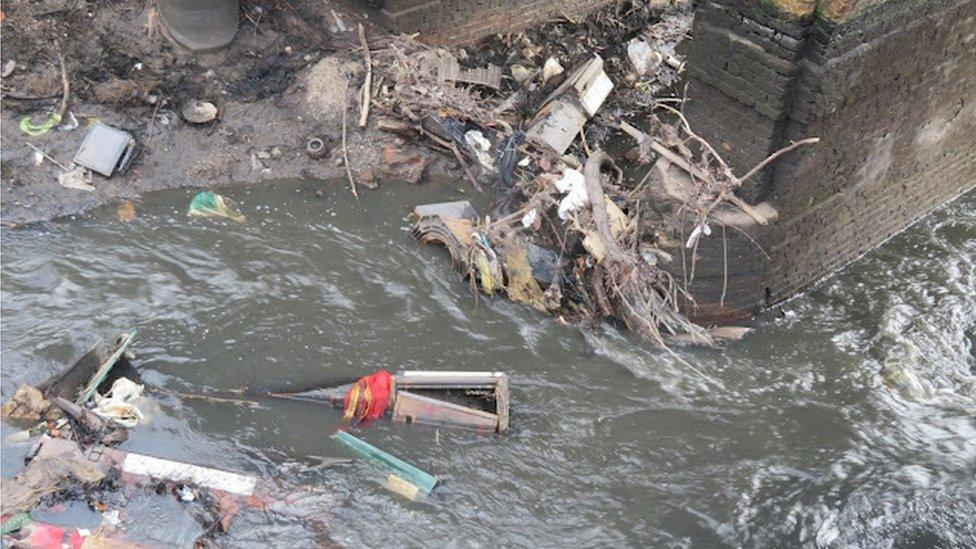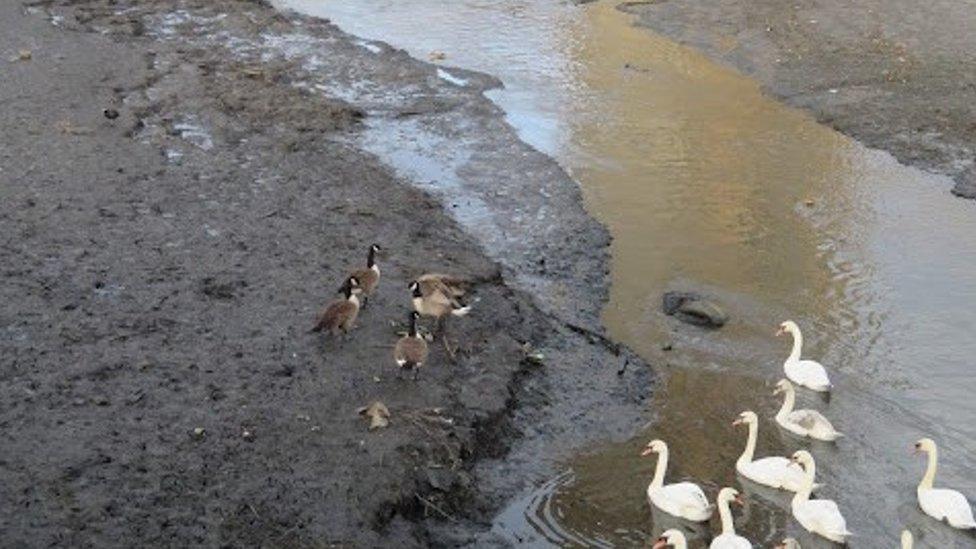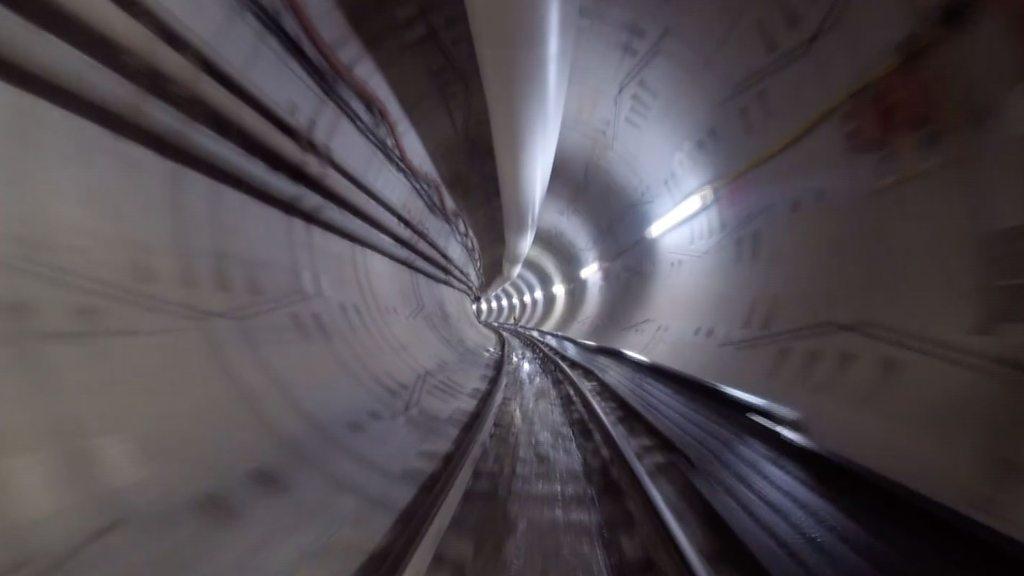Brent Reservoir draining reveals tonnes of rubbish and 'secret river'
- Published

Draining Brent Reservoir is allowing rubbish to be cleared
The draining of a north London reservoir to complete urgent repair work has revealed a "secret river" along with tonnes of litter.
About 400 Olympic-sized swimming pools worth of water has been drained from Brent Reservoir as part of a £2m project by the Canal and River Trust.
Brent Reservoir was built in 1835 to supply water to the Grand Union Canal.
The area is a Site of Special Scientific Interest (SSSI) due to its diverse bird and plant species.
The trust began the five-month project to repair the reservoir's sluice gates, which control water levels, in October, according to the Local Democracy Reporting Service.
'Unique opportunity'
It required the draining of about one million cubic metres of water, which took about four weeks, and exposed a river called the Silk Stream that was originally dammed to form the reservoir.
The Canal and River Trust's director for London and the South East, Ros Daniels, said drainage also provided a "unique opportunity" to clear the rubbish.
The trust set up a crowdfunding campaign which aims to raise £15,000 to fund the removal of tonnes of litter that has been washed or dumped into the water as a result of fly-tipping.

The original Silk Stream was rediscovered after the reservoir was drained
Ms Daniels said: "The Welsh Harp, with Brent Reservoir at its heart, is one of London's most significant urban wild spaces. […] Sadly, local wildlife is fighting a constant battle against plastic pollution and fly-tipping from external sources."
The draining process meant it was also necessary to remove an estimated 100,000 fish which have been rescued since the process started - including a massive mirror carp - much to the shock of two contractors brought in to carry out the operation.
The rescued fish will be rehomed in "nearby canal locations".
When the work is completed, the sluice gates will be closed to allow the reservoir to refill, which is expected to take between two and four weeks, with the project due to be finished by March.
It will then be restocked with native fish species, the trust said.

Listen to the best of BBC Radio London on Sounds and follow BBC London on Facebook, external, X, external and Instagram, external. Send your story ideas to hello.bbclondon@bbc.co.uk
Related topics
- Published3 July 2023
- Published21 February 2020
